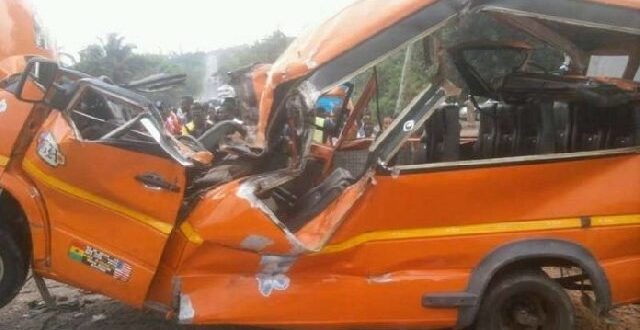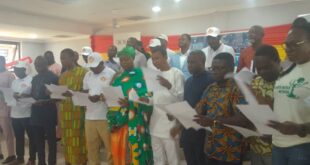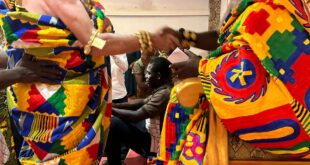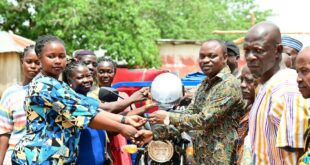The total number of vehicles involved was 234 out of which there were 34 fatal cases, 79 serious cases, and 33 minor cases.
Persons injured were 239 whilst pedestrian knockdown cases were 21 during the year under review.
Mr Kwame Owusu Abroakwa, the Upper West Regional Director of the NRSA presented the statistics during the Regional launch of the “Stay Alive” campaign in Wa dubbed: “Gyea Obosam Adwuma No”.
He said the campaign is aimed at reducing crashes, injuries and deaths and urged drivers and riders not to attribute every accident to the devil but rather endeavour to be cautious before, during and after the Christmas and New Year festivities.
Mr Abroakwa listed inadequate lighting on the roads; wrongful and double parking; wrongful siting of temporal structures such as containers, sand, stones, charcoal, and fruit vendors as some of the challenges of road safety in the region.
The rest are placement of posters on road signs and substandard billboards; nature of roads; and indiscipline behaviour on the roads.
He said the NRSA would intensify education, inspection and enforcement activities in collaboration with the police and other stakeholders to ensure adherence to the Road Traffic Regulations on wearing of crash helmets and seatbelts, unapproved lamps, and distractive driving/riding.
Mr Peter Maala, the Regional Coordinating Director who delivered a speech on behalf of the Upper West Regional Minister, Dr Hafiz Bin Salih, lauded the timing of the campaign since the rate of accidents often increase during the yuletide.
He said road safety continued to cause devastative effects on the lives of the people and the Upper West Region was no exception.
Many factors including state and condition of the roads, overspeeding, drunk driving, and driving for long-distance without rest all contributed to the accident cases.
He said in all these factors, the human factor dominated and this called for behaviour change among drivers and pedestrians, adding that obeying road signs was one critical factor in reducing road accidents.
He said the “Stay Alive” campaign being launched was borne out of the desire to reduce the carnage on the roads, adding that it should therefore be anchored on their individual and collective obligation to be more conscious, involved and responsible rather than pointing fingers.
Dr Bin Salih, therefore, urged stakeholders to be accountable and to accept full responsibility for the carnage on the roads rather than attributing it to the work of the devil.
He said among the objectives to execute the campaign were that motorists should adopt positive behaviours that encouraged road users to observe and advocate for compliance to road safety regulations and report infractions.
“Also elicit a commitment to safety from policymakers, implementers and enforcers; road signs are not for decoration as many people see them be; road signs talk to us and direct us as to how to behave on our roads to avoid accidents”, he said.
“When we disobey them, accidents happen and we often attribute them to the devil. If we behave properly on our roads and listen to the advice of the police and other road traffic experts, road accidents will reduce in our region to the barest minimum”, the Regional Minister added.
Mr Nuhu Mahama, Senior Industrial Relations Officer, Ghana Private Road Transport Union (GPRTU), mentioned bad roads, lack of road signs, and long-distance driving as some of the concerns he would like to be addressed.
He said road safety education should be made a priority and called on the government to allocate adequate resources to the NRSA and allied agencies to give them proper education on road safety all the time.
“Rigid enforcement without proper education can be problematic”, he said.
Assistant Commissioner of Police (ACP), Mr Peter Indekugri Anumbugre, the Upper West Regional Police Commander, advised drivers to always check their car tyres to ensure that they did not expire before embarking on a journey.
He also admonished motor riders to ensure to wear a crash helmet when riding.
 Home Of Ghana News Ghana News, Entertainment And More
Home Of Ghana News Ghana News, Entertainment And More





